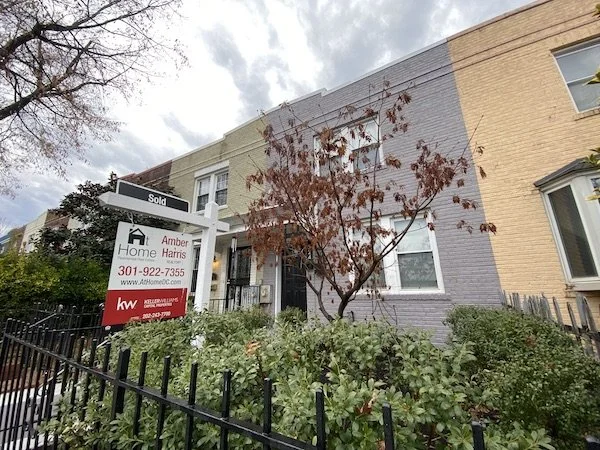The 3P’s In Action: This home went from listing to settlement in 3 weeks, selling 3x faster than the local median DOM and for 102% of list price when the median is 93%)!
In a hot real estate market, like the Washington, DC area, there sometimes is the misconception that all you need to do to sell a house is put a sign in the yard and list it on the MLS. However, there is much more that goes into selling a home...and doing it for the maximum price possible in the current market.
While there is a list of more than 100 things I do before listing a home for a client, I like to focus on the "Three Ps" when advising homeowners on what to expect in our initial consultation:
1. Preparation: Depending on the condition of your home, the market and your ability to invest in repairs and updates, there may be a short or long list of recommended items to tend to. Some will be absolutely necessary, like ensuring major systems are operational or that there is fresh, neutral paint throughout; while others may be advisable to increase your potential of top dollar, like updating features and fixtures in kitchens and bathrooms or staging your home.
Every property is different, and we'll talk through the reasoning behind each recommendation and why it may be a smart investment. Some projects may take a quick trip to Home Depot and a day of labor and others may require more planning and a professional. For this reason, you should consult with a real estate agent as soon as you know (or are fairly confident that) you will be selling. This allows Realtors like me to prepare a recommended plan and timeline, so you don't add undue stress to the homeselling process.
2. Pricing: At every initial consultation with a client, I will be prepared with a range of market insights, including relevant comparables (aka comps), so that I can make a recommendation on list price after seeing a client's home. That recommendation begins as a narrow range and where we land ultimately depends on the repairs and updates made, recent sales and available inventory at the time we list and other circumstances and requirements (e.g., you need a buyer who will allow you to rent back your home for 30-60 days).
Pricing, ultimately, is a means to an end...maximizing your net after paying off your mortgage (if applicable) and other closing costs. The right price will get the greatest number of potential buyers in the door and, in some cases, you may get multiple offers that could escalate above list price; in other instances, you may find the market telling you that it thinks your home is priced too high -- either by a lack of offers or only offers that are effectively below list. The goal is to price right from the beginning leveraging data but to be prepared to make a swift changed if needed.
3. Promotion: Preparing your home with repairs & updates, as well as staging and pricing it correctly are the foundation, but promotion is key to ensuring that you reach the right audiences. Promotion spans dozens of activities, including:
Professional Photography
Signage & Flyers
Custom Websites, Tours & URLs
Email Marketing to Agents & Potential Buyers
Open Houses for Neighbors, Agents & Buyers
Social Media Content, Especially Graphics & Video
Buyer Incentives, Like Home Warranties
There is no one-size-fits-all when it comes to promotion, so having an agent versed in PR, marketing and social media strategy is a huge asset. Strategic promotion will try to maximize the reach, but be targeted toward those who have the greatest potential of bringing or being a buyer.
As you can see in this brief exploration, there are seemingly limitless considerations that can have clear consequences on how much your home sells for (and how quickly). Ultimately, you're behind the wheel...but let a trusted agent be your navigator and partner on the road to the closing table.
Amber Harris is the owner of At Home DC and a licensed real estate agent with Keller Williams Capital Properties working with clients in DC, Maryland and Virginia.


